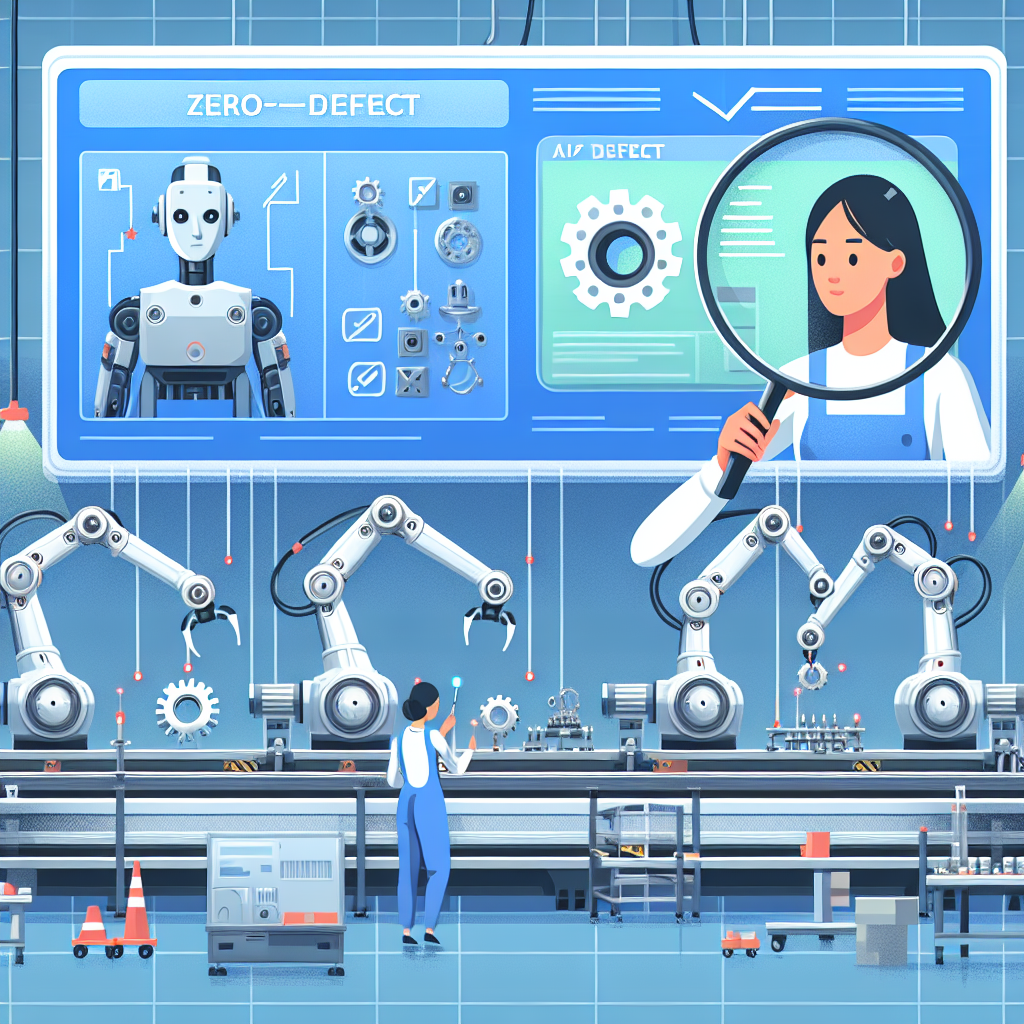Zero Defect Manufacturing is a concept that aims to eliminate defects in the manufacturing process, resulting in products that meet the highest quality standards. This approach has gained popularity in various industries, including automotive, aerospace, and electronics, where the cost of defects can be significant both in terms of financial losses and damage to reputation.
To achieve zero defects, manufacturers must implement rigorous quality control measures throughout the production process. This includes monitoring and analyzing various parameters such as temperature, pressure, and speed to detect any abnormalities that could lead to defects. Traditionally, this has been a labor-intensive process that relies on human operators to identify and address issues as they arise.
However, with the advancement of Artificial Intelligence (AI) technology, manufacturers now have a powerful tool at their disposal to help them achieve zero defects more efficiently and effectively. AI can analyze vast amounts of data in real-time, identify patterns and anomalies, and make decisions autonomously to prevent defects from occurring.
The Role of AI in Zero Defect Manufacturing
1. Predictive Maintenance
One of the key roles of AI in zero defect manufacturing is predictive maintenance. By analyzing data from sensors and machinery, AI can predict when equipment is likely to fail and recommend maintenance before a defect occurs. This proactive approach helps manufacturers avoid costly downtime and prevent defects before they impact product quality.
2. Quality Control
AI can also play a crucial role in quality control by analyzing data from various sources, such as cameras, sensors, and production lines, to detect defects early in the manufacturing process. By identifying issues in real-time, manufacturers can take immediate corrective action to prevent defective products from reaching the market.
3. Process Optimization
AI algorithms can analyze production data to identify inefficiencies and bottlenecks in the manufacturing process. By optimizing production parameters, AI can help manufacturers improve product quality, reduce waste, and increase overall efficiency.
4. Supply Chain Management
AI can also be used to optimize supply chain management by analyzing demand forecasts, inventory levels, and production schedules to ensure that the right materials are available at the right time. This helps manufacturers avoid production delays and ensures that products are delivered to customers on time and defect-free.
5. Root Cause Analysis
When defects do occur, AI can help manufacturers identify the root cause of the problem by analyzing production data and identifying patterns that may have contributed to the defect. By understanding the underlying causes of defects, manufacturers can implement targeted solutions to prevent similar issues from occurring in the future.
FAQs
Q: How does AI improve quality control in manufacturing?
A: AI can analyze data from various sources, such as sensors, cameras, and production lines, to detect defects early in the manufacturing process. By identifying issues in real-time, manufacturers can take immediate corrective action to prevent defective products from reaching the market.
Q: Can AI help manufacturers reduce production costs?
A: Yes, AI can help manufacturers reduce production costs by optimizing production parameters, identifying inefficiencies, and preventing defects that can lead to costly rework or scrap.
Q: How can manufacturers implement AI in their manufacturing processes?
A: Manufacturers can implement AI in their manufacturing processes by investing in AI-enabled software and sensors, training employees to use AI tools effectively, and partnering with AI technology providers to develop customized solutions for their specific needs.
Q: What are the benefits of implementing AI in zero defect manufacturing?
A: The benefits of implementing AI in zero defect manufacturing include improved product quality, reduced production costs, increased efficiency, and enhanced customer satisfaction.
In conclusion, AI plays a crucial role in helping manufacturers achieve zero defect manufacturing by improving quality control, optimizing production processes, and preventing defects before they occur. By harnessing the power of AI technology, manufacturers can enhance product quality, reduce production costs, and gain a competitive edge in the marketplace.

